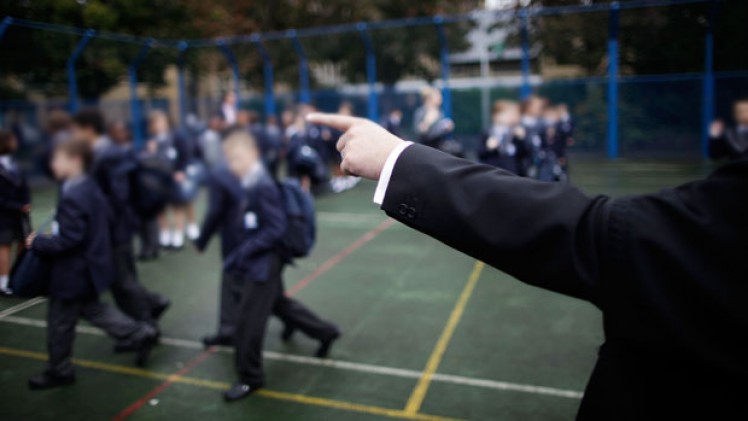-
Tips for becoming a good boxer - November 6, 2020
-
7 expert tips for making your hens night a memorable one - November 6, 2020
-
5 reasons to host your Christmas party on a cruise boat - November 6, 2020
-
What to do when you’re charged with a crime - November 6, 2020
-
Should you get one or multiple dogs? Here’s all you need to know - November 3, 2020
-
A Guide: How to Build Your Very Own Magic Mirror - February 14, 2019
-
Our Top Inspirational Baseball Stars - November 24, 2018
-
Five Tech Tools That Will Help You Turn Your Blog into a Business - November 24, 2018
-
How to Indulge on Vacation without Expanding Your Waist - November 9, 2018
-
5 Strategies for Businesses to Appeal to Today’s Increasingly Mobile-Crazed Customers - November 9, 2018
Schools told to monitor pupils’ web use to prevent radicalisation
Schools will be forced to monitor students’ internet usage and filter what they have access to online in new government plans aimed to protect children from radicalisation.
Advertisement
The Education Secretary has ordered officials to review home education in England over fears that parents could be “poisoning” their children’s minds.
Another proposal is to make schools put internet filters on all computers and create a system of monitoring which will ensure inappropriate online content can not be seen by pupils.
In the United Kingdom, a new government directive requires all school strengthen measures to prevent children cyber-bullying, pornography and radicalization.
The consultation published by the Education Department outlines a range of possible measures ministers could take to improve online safety for youngsters and will run until 16 February.
Furthermore, Mrs Morgan entailed that “these measures are delivering on the government’s commitment to keep children safe from harm, as well as providing helpful support and information for professionals and parents so we are all equipped to help protect children in this digital age”. “We think schools would welcome greater clarity on how to deploy appropriate filters and monitoring systems and that they will readily fulfill their safeguarding duties in this domain”.
Last week, the Chief Inspector of Schools said that parents who choose for their children to be educated according to their own faith must ensure they are tolerant of other religions.
Ofsted was told earlier this month to prepare cases for prosecution against 18 unregistered schools, and all future cases, in a push to stop pupils being exposed to extremist ideology.
An unnamed senior government source said: “There has always been the freedom in this country for people to educate their children at home”.
Three unregistered schools shut down by watchdog Ofsted in Birmingham in November were offering a narrow Islamic-based curriculum using anti-Semitic, homophobic and misogynistic material in conditions which represented a fire risk, it said. It also advises parents to teach children that some people they meet online may not be who they claim to be.
Advertisement
Baroness Shields added: “The two guides we’ve published today, developed by the UK Council for Child Internet Safety’s panel of experts, are all part of our ongoing work to keep children safe online”.





























